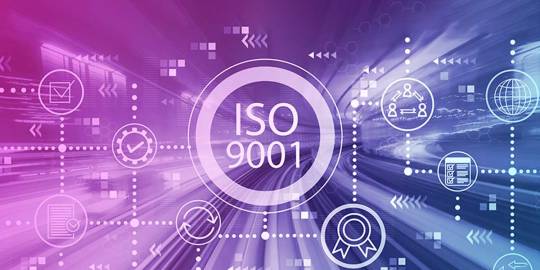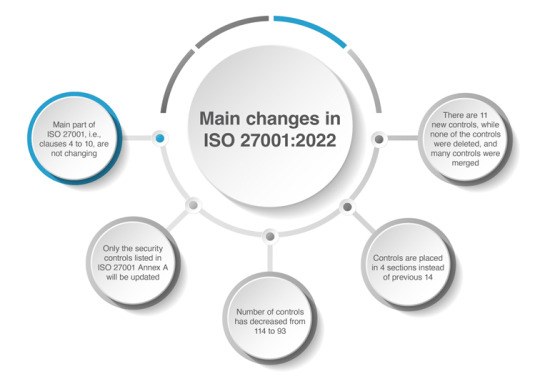Text
Univate Solutions is your preferred CMMI management consultants and CMMI partners and aims to help clients improve their business processes and achieve excellence. We are a leading management consulting firm specializing in Governance Risk and Compliance (GRC), Quality Business Process Reengineering, Service management, Information Security and Business continuity, and Continuous Improvement.
0 notes
Text
Empowering Secure Operations: The Importance of SOC 2 Certification in India
Cyber security has become a main issue for digital businesses to look after. Due to the constant growth of cyber threats, organizations don't have any other option than to use and adopt robust security measures in order to protect their data and not harm the customer's trust. SOC 2 Certification is becoming famous in India, where data privacy and security are supreme concerns.
Grasp of SOC 2 Compliance
SOC 2 compliance is a service that is supervised by the American Institute of Certified Public Accountants (AICPA) and is a context made to look after the efficiency of an establishment's intel control that is connected to security and privacy. SOC 2 is dissimilar from SOC 1, which points to financial information.SOC 2 Certification in India emphasizes technology and online computation, making it valid for a lot of businesses that are being done online.
Why Indian Businesses Need SOC 2 Certification
Here are a few reasons why Indian businesses need SOC 2 certification:
• Enhanced Security Posture and Data Protection
SOC2 certification makes it clear that organizations must have good security measures to protect their privacy and sensitive data from unwanted cyber attacks. It increases the confidence of customers to invest more.
• Building Trust & Credibility with Clients and Partners
SOC 2 focuses on securing data from unwanted threats, which is important for a business to build up trust with its partners and clients.
• Increased Competitive Advantage in the Marketplace
It ensures and signals clients that their company has required security standards.
• Improved Operational Efficiency and Risk Management
It assists in recognizing and addressing security gaps, leading to better risk management.
Deciding the Correct SOC 2 Type (Type 1 vs. Type 2) for Your Needs
The organization needs to select amongst Type 1 or 2 reports. The choice hinges on the organization's need and the level of honor needed by the client. Soc 2 type 1 certification analyzes the strategy of control at a specific time, whereasSOC 2 Type 2 Certification looks at the usefulness of these controls.
Streamlined SOC 2 Audit & Certification Process in India
SOC 2 Compliance can be obtained with ease due to the increased demand for cybersecurity compliance. Firms that are experts in SOC 2 can guide organizations throughout the process, from assessments to final audits and reports. In India, as cyber security threats continue to increase, businesses are recognizing the importance of SOC 2 compliance to demonstrate their commitment to data security and privacy. With the growing demand for SOC 2 certification, specialized firms equipped with deep expertise in regulatory frameworks and cyber security practices have emerged to streamline the audit process for organizations.
Conclusion SOC 2 certification plays a great role in securing Indian business. Contact Univate Solutions as they offer businesses a great service to protect against several threats that can be harmful to overall business. Take action today to safeguard your customer data and ensure your business remains resilient against cyber threats by partnering with Univate Solutions for SOC 2 certification. In today's digital era, investing in SOC 2 certification compliance through services offered by Univate Solutions is a strategic decision that can safeguard the future of Indian businesses.

0 notes
Text
ISO 27001 Certification helps organizations identify security requirements, fulfill objectives, and economically manage security risks. The standard also ensures compliance with applicable laws and regulations and provides a means to measure the status of information security management activities. ISO 27001 Certification in India can communicate information security policies, directives, standards, and procedures to other organizations and customers.
0 notes
Text
SOC 2 Certification and SSAE 18 Compliance in India's Information Security Landscape
Organizations globally and in India are increasingly recognizing the importance of robust information security measures to protect sensitive data and maintain trust with clients and stakeholders. In this context, SOC 2 Certification and compliance with SSAE 18 standards emerge as critical benchmarks, providing assurance of an organization's commitment to maintaining stringent controls over its systems and data.
Understanding SOC 2 Certification in India
The SOC 2 Certification, established by the American Institute of Certified Public Accountants (AICPA), emerges as a gold standard framework designed to meticulously assess and validate the efficacy of an organization's controls pertaining to security, availability, processing integrity, confidentiality, and privacy.
At its core, SOC 2 Certification is built upon a foundation of robust control measures aimed at safeguarding critical assets and sensitive data. These controls encompass various domains, including:
Security: Ensuring the protection of systems, infrastructure, and data against unauthorized access, cyber threats, and malicious activities.
Availability: Guaranteeing the availability and reliability of systems and services to meet operational requirements and business needs consistently.
Processing Integrity: Validating the accuracy, completeness, and timeliness of data processing to maintain data integrity and reliability.
Confidentiality: Preserving the confidentiality of sensitive information by restricting access to authorized individuals and preventing unauthorized disclosure or leakage.
Privacy: Safeguarding personal information and ensuring compliance with relevant privacy laws and regulations to protect individual privacy rights.
Target Audience and Relevance
SOC 2 Certification holds particular significance for service organizations that handle sensitive data on behalf of their clients or customers. This includes a wide spectrum of entities, such as cloud service providers, data centers, managed service providers, and Software-as-a-Service (SaaS) providers. By obtaining SOC 2 Certification in India, these organizations signal their commitment to upholding industry-leading standards for information security and data protection, thereby instilling confidence and trust among their clients, partners, and stakeholders.
The Seal of Approval
Achieving SOC 2 Certification serves as a definitive seal of approval, signifying an organization's adherence to stringent security and privacy standards. It demonstrates a proactive approach to mitigating risks, enhancing transparency, and ensuring the integrity of operations. Moreover, SOC 2 Certification not only validates the effectiveness of an organization's controls at a specific point in time but also underscores its ongoing commitment to maintaining a secure and compliant environment.
Delving into SOC 2 Type 1 and Type 2 Certification
SOC 2 Certification comes in two distinct types, each offering different levels of assurance
SOC 2 Type 1 Certification: It evaluates the design and implementation of an organization's controls at a specific point in time, providing stakeholders with assurance that the controls are suitably designed to meet predefined criteria.
SOC 2 Type 2 Certification: goes a step further by assessing the effectiveness of these controls over a specified period, typically six to twelve months. This certification offers a higher level of assurance, demonstrating that the controls not only meet the criteria but also operate effectively over time.
Significance of SOC 2 Certification in India
In the vibrant landscape of India's outsourcing industry, maintaining the highest standards of information security and data privacy is paramount. Against this backdrop, SOC 2 Certification in India emerges as a pivotal assurance mechanism, providing both domestic and international clients with the confidence that Indian service providers adhere to globally recognized benchmarks for safeguarding sensitive information.
As India continues to solidify its position as a hub for outsourcing services, the demand for stringent information security measures grows exponentially. International clients, in particular, place a premium on partnering with service providers that demonstrate a steadfast commitment to protecting their data. SOC 2 Certification serves as a tangible demonstration of an organization's adherence to industry-leading standards, assuring clients of its capability to safeguard their confidential information effectively.
Navigating the Regulatory Landscape
India's regulatory landscape pertaining to data protection and privacy is evolving rapidly, with stringent compliance requirements being imposed by regulatory bodies such as the Reserve Bank of India (RBI), Securities and Exchange Board of India (SEBI), and the Ministry of Electronics and Information Technology (MeitY). SOC 2 Certification provides organizations with a structured framework to navigate these regulatory complexities, ensuring alignment with statutory obligations while fostering a culture of proactive risk management and compliance.
Achieving SOC 2 Certification in India entails undergoing rigorous audits conducted by independent third-party firms accredited by the AICPA. These audits evaluate the organization's controls across key domains, including security, availability, processing integrity, confidentiality, and privacy. By subjecting themselves to such scrutiny, organizations not only demonstrate their commitment to excellence but also gain invaluable insights into areas for improvement, thereby enhancing their overall security posture.
Fostering Trust and Confidence
In an era where data breaches and cyber threats are ever-present risks, establishing trust and confidence is paramount for service providers in India. SOC 2 Certification serves as a tangible testament to an organization's dedication to protecting client data and upholding the highest standards of integrity and confidentiality. This, in turn, strengthens relationships with existing clients and opens doors to new opportunities by showcasing a commitment to transparency, accountability, and excellence.
The Crucial Role of SSAE 18 Compliance
Complementing SOC 2 Certification is compliance with Statement on Standards for Attestation Engagements No. 18 (SSAE 18), the successor to SAS 70. SSAE 18 Compliance focuses on assessing the controls at service organizations relevant to their customers' financial reporting. It mandates regular assessments by independent auditors to verify compliance with established standards and regulations, further reinforcing an organization's commitment to transparency and accountability.
Conclusion In conclusion, SOC 2 Certification in India and SSAE 18 Compliance serve as cornerstones for elevating information security standards in India's burgeoning digital landscape. By obtaining these certifications, organizations demonstrate their dedication to protecting sensitive data, fostering trust with clients, and mitigating risks associated with data breaches and regulatory non-compliance. Embracing SOC 2 Certification and adhering to SSAE 18 Compliance not only enhances an organization's credibility but also positions it as a reliable custodian of data in today's data-driven world.

0 notes
Text
Secure SOC 2 Certification in India with Univate Solutions. Our tailored approach ensures comprehensive compliance with industry-leading security standards. Partner with us for expert guidance, efficient implementation, and fortified data protection measures. Elevate your organization's trustworthiness and competitiveness in today's digital landscape with SOC 2 Certification in India through Univate Solutions.
0 notes
Text
Navigating SOC 2 Compliance: A Guide to SOC 2 Certification and Costs in India
In today's interconnected digital landscape, ensuring the security, availability, and integrity of sensitive data is paramount for organizations across industries. As data breaches and cyber threats continue to pose significant risks, businesses in India are increasingly turning to SOC 2 compliance as a benchmark for demonstrating their commitment to robust information security practices. In this comprehensive guide, we explore SOC 2 compliance in the Indian context, delve into the certification process, shed light on associated costs, and highlight the significance of SOC 2 certification in Bangalore, the country's thriving tech hub.
What is SOC 2 Compliance?
SOC 2 compliance emerges as a beacon of assurance, providing a structured framework for evaluating and enhancing information security practices within service organizations. Let's delve deeper into the essence of SOC 2 certification compliance and its significance in safeguarding customer data and upholding the principles of security, availability, processing integrity, confidentiality, and privacy. SOC 2, an acronym for Service Organization Control 2, stands as a testament to the commitment of service organizations towards safeguarding customer data and maintaining high standards of information security. Developed by the American Institute of Certified Public Accountants (AICPA), SOC 2 serves as a comprehensive framework for assessing the controls implemented by service organizations to protect the interests of their clients and stakeholders.
Framework and Criteria
At the heart of SOC 2 compliance lies a set of stringent criteria known as Trust Services Criteria (TSC). These criteria encompass five key principles: security, availability, processing integrity, confidentiality, and privacy. Each principle outlines specific requirements and controls that service organizations must adhere to in order to demonstrate compliance with SOC 2 standards.
The security principle focuses on protecting the organization's systems, data, and infrastructure from unauthorized access, breaches, and malicious activities. It encompasses measures such as access controls, encryption, data management, and incident response protocols.
The availability principle emphasizes the importance of ensuring timely and reliable access to services and systems. It entails implementing measures to minimize downtime, mitigate disruptions, and maintain uninterrupted service availability for clients and users.
Processing Integrity
The processing integrity principle pertains to the accuracy, completeness, and reliability of data processing operations. It involves implementing controls to ensure the integrity of data throughout its lifecycle, including input, processing, storage, and output.
The confidentiality aspect focuses on protecting sensitive information from unauthorized disclosure or access. It involves implementing measures such as encryption, access controls, and data classification to safeguard confidential data from unauthorized disclosure or misuse.
The privacy principle centers on the collection, use, retention, and disposal of personal information in accordance with relevant privacy laws and regulations. It entails implementing policies, procedures, and controls to protect the privacy rights of individuals and ensure compliance with applicable privacy requirements.
Achieving SOC 2 Certification and Compliance in India
Achieving SOC 2 compliance requires service organizations to undergo a comprehensive assessment of their information security practices and controls. This involves conducting a thorough evaluation of processes, systems, and policies against the Trust Services Criteria (TSC) outlined by SOC 2 standards. By identifying gaps, vulnerabilities, and areas for improvement, organizations can implement robust controls and measures to mitigate risks and achieve compliance with SOC 2 requirements.
SOC 2 compliance holds significant importance for service organizations seeking to build trust and confidence with clients, stakeholders, and partners. By demonstrating adherence to SOC 2 standards, organizations reassure their clients of their commitment to protecting sensitive information and upholding the principles of security, availability, processing integrity, confidentiality, and privacy. SOC 2 compliance serves as a hallmark of reliability, transparency, and accountability, instilling trust and confidence in the integrity of service organizations and their ability to safeguard customer data.
In essence, SOC 2 compliance serves as a guiding beacon for service organizations, illuminating the path towards enhanced information security, operational excellence, and stakeholder trust. By embracing the principles and criteria outlined by SOC 2 standards, organizations empower themselves to navigate the complexities of the digital landscape with confidence and resilience, ensuring the security, availability, integrity, confidentiality, and privacy of information in today's dynamic and interconnected world.
Understanding SOC 2 Type 1 vs Type 2
SOC 2 compliance offers two distinct types of reports: Type 1 and Type 2. These reports serve different purposes and provide varying levels of assurance to stakeholders.
Type 1 Report: A SOC 2 Type 1 report provides an organization's stakeholders with an assessment of its systems and processes at a specific point in time. This report verifies that the organization has established and implemented controls designed to meet the Trust Services Criteria (TSC). It confirms that the controls are suitably designed and in place but does not assess their operational effectiveness over time.
Type 2 Report: On the other hand, a SOC 2 Type 2 report offers a comprehensive evaluation of an organization's controls over a specified period, typically spanning 6 to 12 months. This report not only confirms the design and implementation of controls but also assesses their operational effectiveness. It provides stakeholders with assurance that the controls have been consistently applied and maintained over time, offering a higher level of confidence in the organization's security posture.
Differentiating Between SOC 1, SOC 2, and SOC 3 Certification
While SOC 2 is tailored to technology companies, it's essential to understand the broader context of SOC reports and their distinctions.
SOC 1 Report: SOC 1 reports are focused on controls relevant to financial reporting. They are commonly used by service organizations such as data centers, payroll processors, and financial transaction processors to assure their clients of the effectiveness of controls related to financial reporting.
SOC 2 Report: SOC 2 reports, as discussed earlier, focus on controls related to security, availability, processing integrity, confidentiality, and privacy. These reports are particularly relevant for technology companies and service providers handling sensitive customer data.
SOC 3 Report: SOC 3 reports are essentially condensed versions of SOC 2 reports, designed for public consumption. They provide a high-level overview of the organization's compliance with the Trust Services Criteria without delving into detailed control descriptions and testing results. SOC 3 reports are often used for marketing purposes to demonstrate an organization's commitment to security and compliance to potential customers and stakeholders.
Steps to achieve SOC 2 Certification and Compliance
Achieving SOC 2 certification and compliance entails undergoing a rigorous assessment conducted by independent auditors. Organizations seeking SOC 2 certification in India must adhere to the following steps:
Preparation: Conduct a thorough gap analysis to assess the organization's current security posture against SOC 2 requirements. Identify areas of improvement and implement necessary controls and processes.
Audit Preparation: Engage with a qualified auditor to conduct a readiness assessment and prepare for the SOC 2 audit. Define the scope of the audit, gather relevant documentation, and ensure alignment with SOC 2 requirements.
Audit Conduct: Undergo the SOC 2 audit, during which the auditor evaluates the effectiveness of controls implemented by the organization. The audit may involve interviews, document reviews, and testing of controls to assess compliance with Trust Services Criteria.
Type 2 Report: Upon successful completion of the audit, the organization receives a SOC 2 Type 2 report. This report provides detailed information about the effectiveness of controls over a specified period, typically ranging from six to twelve months.
Continuous Monitoring: Maintain ongoing compliance with SOC 2 requirements by monitoring and assessing the effectiveness of controls, addressing any identified deficiencies, and ensuring continuous improvement in information security practices.
Why should you have SOC 2 Certification in Bangalore
As India's leading technology hub, Bangalore is home to a thriving ecosystem of tech companies, startups, and service providers. SOC 2 certification holds particular significance for organizations in Bangalore, as it demonstrates their commitment to maintaining high standards of security and data protection. With increasing regulatory scrutiny and growing concerns about data privacy, SOC 2 certification provides a competitive advantage for organizations in Bangalore, enhancing their credibility, trustworthiness, and marketability in the global marketplace.
What is the Cost for Soc 2 Certification in India?
The cost of SOC 2 certification in India can vary depending on various factors, including the size and complexity of the organization, the scope of the audit, the level of readiness, and the chosen audit firm. Generally, SOC 2 certification cost includes expenses related to audit fees, consulting services, remediation efforts, and ongoing compliance activities. While the cost of SOC 2 certification may seem significant, it is essential to view it as an investment in enhancing information security practices, mitigating risks, and safeguarding organizational reputation and trustworthiness. At Univate Solutions, we work closely with organisations toachieveSO2Type2, and Soc 2 Type 1 certification in India at very reasonable cost.
Conclusion
In conclusion, SOC 2 compliance is increasingly becoming a cornerstone of information security governance for organizations in India, particularly in tech-centric cities like Bangalore. By achieving SOC 2 certification in India, organizations demonstrate their commitment to protecting customer data, maintaining operational excellence, and meeting regulatory requirements. While SOC 2 certification cost may pose initial challenges, the long-term benefits of enhanced security, trust, and market competitiveness far outweigh the investment. Embrace SOC 2 compliance as a strategic imperative, and empower your organization to thrive in today's digitally-driven landscape while preserving the confidentiality, integrity, and availability of sensitive information.

#SOC 2 certification in India#SOC 2 Compliance#SOC 2 certification in Bangalore#SOC 2 standards#SOC 2 audit
0 notes
Text
As a leading CMMI certification consultant in India, Univate Solutions has extensive knowledge and experience in implementing CMMI practices. We offer business organizations Faster, Transparent and Cost effective solution to achieve CMMI Certification in Bangalore
0 notes
Text
Role of ISO 9001 Certification in Building Trust with Indian Customers
Establishing and strengthening customer trust is of utmost importance in India's competitive business environment, and ISO 9001 Certification provides organizations with an effective tool to do just that. The international quality management standard guarantees operational excellence, and its goal of increasing customer confidence plays a pivotal role. Here, we will understand the certification, its importance and how Univate Solutions help companies to achieve this globally recognized certification.
Understanding ISO 9001 Certification
ISO 9001 is an internationally recognized standard that defines criteria for an effective quality management system, outlining principles and processes organizations should implement to guarantee customer requirements are always fulfilled. Receiving an ISO 9001 certification signifies an organization's dedication to quality, efficiency, and continuous improvement - something no other certification can do. As it showcases successful implementation of Quality Management Systems within any company, any Indian business looking for superior quality practices are welcome to apply for ISO certification. ISO 9001 Certification can improve production, total efficacy and overall output in Indian industries. It effectively ensures procedures are followed, processes are approved, products meet client expectations properly.
Implementing ISO 9001 Certificate standards also guarantees products of uniform and superior quality, making production simpler to monitor and identify problems more easily for industries. Implementing such standards can save money while improving customer happiness and increasing productivity.
ISO 9001 Certification Provides Consistency and Reliability
Indian businesses benefiting from ISO 9001 certification in India are marked by consistency and reliability, especially as customer expectations evolve. Customers tend to trust businesses adhering to internationally recognized standards more easily as it shows that commitment to producing products of superior quality exists within an organization.
Enhancing Credibility in India
With consumers becoming ever more discerning in Indian markets, ISO 9001 Certification can act as an invaluable differentiator and competitive edge by showing companies' dedication to meeting and exceeding customer expectations. This elevated credibility can significantly influence decision-making, especially within industries where trust plays a vital role.
Industries Eligible to Apply For ISO 9001 Certification
Aerospace industries,
Food and Beverage industries,
Automotive industries,
Machinery and Equipment industries,
Medical Device industries,
Electronics and Computer industries,
Chemical industries,
Printing and Packaging industries,
Fabrication and Metalworking industries,
Building and Construction industries, etc.
Univate Solutions: Facilitating ISO 9001 Certification in India
Univate Solutions offers businesses that aspire to attain ISO 9001 Certification an invaluable partner on their path toward excellence. Their certified experts guide organizations through each certification stage with tailored solutions specifically crafted to their requirements and meet these challenges head-on. Univate Solutions utilizes an experienced team of consultants to assist businesses with creating and maintaining quality management systems by ISO 9001 standards. Their staff understands the intricacies of certification procedures while helping integrate quality into operations seamlessly.
Conclusion
ISO 9001 Certification can play an instrumental role in building customer trust within Indian markets, as a tangible demonstration of an organization's dedication to quality delivery and satisfaction for its customer base. Businesses seeking ISO 9001 Certification in India can trust Univate Solutions as their reliable guide. Univate Solutions ensures an easy, smooth certification journey that meets ISO requirements and strengthens customer relations.

0 notes
Text
Get CMMI certification in Pune with professional consulting and CMMI training services for all range of business at Univate Solutions. Achieve optimal business maturity and reliability with our CMMI Certification services tailored for Pune-based businesses.
Contact us today experts CMMI certification process in Pune.
0 notes
Text
CMMI Certification in Pune: Gateway to Organizational Excellence
In today's competitive business landscape, organizations in India are constantly striving to improve their processes and deliver high-quality products and services. This is where Capability Maturity Model Integration (CMMI) comes into play. CMMI is a globally recognized framework that helps organizations improve their processes and achieve organizational excellence. Let’s discuss the role and benefits of CMMI certification in Pune and how it can be a gateway to organizational excellence.
CMMI or (Capability Maturity Model Integration) is a process improvement framework that helps organizations streamline their processes and achieve better results. CMMI provides a roadmap for organizations in India to improve their processes and achieve higher levels of maturity. In the dynamic world of business operations, achieving excellence is paramount for sustained success. One crucial avenue for organizations in Pune to embark on this journey is through the implementation of the Capability Maturity Model Integration (CMMI) framework. CMMI certification in Pune serves as a pivotal gateway, guiding organizations towards heightened efficiency, enhanced processes, and overall organizational excellence.
Pune, also known as the "Oxford of the East", is a major hub for IT and software companies in India. With a large number of organizations operating in Pune, the demand for CMMI certification has also increased. CMMI certification in Pune and other cities in India is a testament to an organization's commitment to quality and process improvement. It helps organizations gain a competitive edge and attract more clients.
Benefits of CMMI Certification in Pune, India
Improved Processes and Quality: CMMI certification helps organizations identify and eliminate inefficiencies in their processes. By following the CMMI model, organizations in Pune, India can streamline their processes and deliver high-quality products and services. Achieving the CMMI certification will help increase customer satisfaction and improve business outcomes.
Global Recognition: CMMI is a globally recognized framework that is used by organizations in various industries. By obtaining CMMI certification in Pune, organizations can showcase their commitment to quality and process improvement to clients and stakeholders worldwide.
Increased Efficiency and Productivity: CMMI certification helps organizations improve their processes and eliminate waste. This leads to increased efficiency and productivity, as employees are able to focus on value-added tasks rather than wasting time on non-value-added activities.
Better Risk Management: CMMI provides a structured approach to risk management, helping organizations identify and mitigate potential risks. This leads to better decision-making and helps organizations avoid costly mistakes.
CMMI Levels: CMMI has various CMMI levels of maturity, each representing a different level of process improvement. Also, the organizations can choose the level of maturity that best suits their business needs and work towards achieving it. As a leading CMMI consultant, Univate Solutions offers a wide range of CMMI certification in India, empowering organizations to achieve optimal process maturity and excellence.
Navigating the CMMI Certification Process in Pune, India with Univate Solutions
To attain CMMI certification in Pune, organizations must navigate a structured process. This involves a detailed assessment of their current processes, the establishment of improvement goals, and the implementation of best practices. The CMMI certification journey is a collaborative effort that engages all levels of the organization, ensuring a holistic approach to process enhancement. With the help of Univate Solutions expertise, organizations in Pune can achieve CMMI certification with ease.
With a roadmap in place, organizations in Pune can systematically implement CMMI practices across various departments. This involves training teams, streamlining processes, and integrating CMMI methodologies into day-to-day operations. By fostering a culture of process maturity, companies in Pune, India can enhance their overall performance and position themselves as industry leaders. In conclusion, CMMI certification in Pune is not just a benchmark; it is a transformative process that propels organizations towards excellence. Getting CMMI certification in Pune and other cities in India is a valuable asset for organizations looking to improve their processes and achieve organizational excellence. It helps organizations gain a competitive edge, increase efficiency and productivity, and improve customer satisfaction. With the demand for CMMI certification on the rise, organizations in Pune, India can benefit greatly by obtaining this certification and showcasing their commitment to quality and process improvement. Enhance the journey, unlock the potential, and make CMMI certification the cornerstone of your organization's quest for excellence in Pune, India. Get in touch with the leading CMMI certification consultants in India – Univate Solutions today!

0 notes
Text
Strategic Excellence: How CMMI Certification Boosts Competitiveness in the Indian Market
The Indian business market is one of the fastest-growing and most dynamic in the world, with a huge potential for innovation and growth. However, it also faces many challenges, such as increasing competition, changing customer expectations, regulatory compliance, quality assurance, and risk management. To succeed in this complex and volatile business environment, organizations need to adopt a strategic approach to improve their processes, products, services and achieve excellence in their performance.
One of the most effective ways to achieve strategic excellence is to obtain a CMMI certification in India. CMMI stands for Capability Maturity Model Integration, and it is a proven set of best practices that helps organizations understand their current level of capability and performance and offers a guide to optimizing their business results.
The CMMI Certification Advantage: Elevating Competitiveness
In an era where competition is fierce and the pursuit of excellence is paramount, businesses across India are turning to strategic frameworks to gain a competitive edge. One such transformative framework is the Capability Maturity Model Integration (CMMI), a globally recognized standard for process improvement. Let’s explore how CMMI certification in India is becoming the cornerstone of strategic excellence, propelling companies to new heights of competitiveness in the dynamic Indian market.
Enhanced Process Efficiency and Effectiveness: CMMI certification acts as a catalyst for improving and streamlining organizational processes. Univate Solutions guides businesses through the intricacies of process enhancement, ensuring that every operation contributes to overall efficiency. Also, the CMMI certification in India helps organization streamline their processes, eliminate waste, reduce errors, and increase productivity. It also enables organizations to measure and monitor their performance and identify and implement improvement opportunities.
Market Recognition: Securing CMMI certification in India positions businesses as leaders committed to delivering quality products and services. In the Indian market, where credibility is paramount, this recognition becomes a powerful differentiator that sets companies apart from their competitors.
Risk Mitigation and Reducing Cost: Univate Solutions understands the inherent risks in the business landscape. With CMMI certifications like CMMI Level 3 and CMMI Level 5, companies can systematically identify, assess, and mitigate risks, fostering a resilient business environment that can weather uncertainties. Furthermore, achieving CMMI certification in India helps organizations avoid rework, defects, delays, and failures and ensure compliance with relevant standards and regulations. It also helps to mitigate and manage risks and to prevent and resolve issues.
Enhancing customer satisfaction and loyalty: CMMI certification demonstrates to customers that the organization is committed to delivering high-quality products and services that meet their needs and expectations. It also helps to build trust and confidence and foster long-term relationships with customers.
Increasing innovation and growth: CMMI certification helps organizations to foster a culture of learning and improvement and to leverage their strengths and capabilities. It also helps to enhance their creativity and adaptability and to explore new opportunities and markets.
Unveiling Univate Solutions: Your Gateway to CMMI Excellence
At the forefront of this transformative journey is Univate Solutions, a pioneering business consulting company in India offering comprehensive CMMI certification services and specializing in CMMI Level 3 and CMMI Level 5 certification and training facilities. With a team of experienced and qualified CMMI experts, they can provide customized and comprehensive CMMI services to suit the needs and requirements of different organizations. Take your business to new heights with CMMI certification and CMMI training facilities in India that are globally recognized by top performing businesses. Unleash the full potential of your organization with our tailored CMMI certification and training solutions, setting the stage for unprecedented growth, global recognition, and sustained success! As we conclude this exploration into the strategic excellence facilitated by CMMI certification, it is evident that Univate Solutions is at the forefront of empowering Indian businesses for success. By achieving CMMI Level 3 and CMMI Level 5 certification and training, companies can not only enhance their competitiveness in the Indian market but also position themselves as global players. Univate Solutions stands as a beacon, guiding businesses towards a future where strategic excellence is not just a goal but a reality. Jump start the journey to strategic excellence with Univate Solutions and let CMMI certification be the cornerstone of your business success in the vibrant and competitive Indian market. Get a new range of CMMI level 3 and CMMI level 5 certifications for your business and reach new heights in this era of heightened competition and technological evolution.

0 notes
Text
The SOC (System and Organization Controls), also known as SSAE 18 (Statement on Standards for Attestation Engagements), is a standard overseen by the American Institute of Certified Public Accountants (AICPA) that governs the way organizations report on their compliance controls.
0 notes
Text
Unlocking Business Success: CMMI High Maturity Training Explained
In today's competitive business landscape, organizations constantly seek ways to improve their processes, increase efficiency, and deliver high-quality products and services. Adopting the Capability Maturity Model Integration (CMMI) framework is one proven method for achieving these goals. Within CMMI, there is a specific focus on "high maturity," which is critical for organizations striving to excel in their industry.
This article will explore the CMMI High Maturity Training concept, how it can unlock business success, and the proper CMMI Consultancy that can help you.
Understanding CMMI High Maturity
Before we dive into the significance of CMMI High Maturity Training, let's briefly understand what high maturity means within the context of CMMI. The CMMI framework consists of maturity levels representing different process improvement stages. Maturity levels range from 1 (the lowest) to 5 (the highest). Achieving high maturity (levels 4 and 5) signifies an organization's ability to consistently and predictably deliver high-quality results and continuous process improvement.
The Role of CMMI High Maturity Training
CMMI High Maturity Training is a specialized program designed to equip organizations with the knowledge and skills needed to reach maturity levels 4 and 5 within the CMMI framework. Here's how it can unlock business success:
Advanced Process Improvement: High maturity levels require advanced process improvement capabilities. CMMI High Maturity Training (CMMI Training India) provides organizations the tools and techniques to implement, monitor, and continuously improve their processes to achieve higher maturity levels. Hence, this leads to enhanced efficiency and product quality.
Data-Driven Decision-Making: High-maturity organizations rely heavily on data and metrics to make informed decisions. Training in this area helps teams collect, analyze, and interpret data effectively, enabling better decision-making and problem-solving. Data-driven organizations tend to outperform their peers.
Risk Management: With high maturity comes a greater emphasis on risk management. CMMI High Maturity Training teaches organizations to identify, assess, and mitigate risks in their processes and projects. This proactive approach minimizes the likelihood of costly setbacks.
Consistency and Predictability: High-maturity organizations are known for their consistency and predictability in delivering products and services. Through CMMI training, teams learn how to establish and maintain processes that consistently produce desired outcomes, which leads to higher customer satisfaction and trust.
Competitive Advantage: Achieving high maturity within your industry can provide a significant competitive advantage. It sets your organization apart as a reliable and innovative player, attracting more clients and opportunities for growth.
Who Benefits from CMMI High Maturity Training?
CMMI High Maturity Training is not limited to a particular industry or sector. It can benefit any organization striving for excellence in its processes and outcomes. Here are some key stakeholders who can benefit:
Leaders and Managers: Senior executives and managers gain insights into strategic process improvement and learn how to align organizational goals with high-maturity practices.
Project Managers: Project managers acquire skills for implementing high-maturity processes within their projects, ensuring successful outcomes.
Process Improvement Teams: Teams responsible for process improvement learn advanced techniques for optimizing processes and driving innovation.
Quality Assurance Professionals: Quality assurance professionals become adept at monitoring and ensuring compliance with high-maturity processes.
Conclusion
CMMI High Maturity Training is a powerful tool for organizations seeking to unlock business success by reaching maturity levels 4 and 5 within the CMMI framework. By investing in this specialized CMMI training, organizations can enhance their process improvement capabilities, make data-driven decisions, manage risks effectively, and ultimately gain a competitive advantage in their industry. CMMI High Maturity Training can propel your organization toward higher levels of performance and excellence. Getting CMMI Certification India becomes easy with the right partner. Univate Solutions offers the best CMMI High Maturity Training, which helps organizations propel towards better opportunities. Contact the Univate Solutions team for more details.

0 notes
Text
CMMI Development is an integrated set of best practices that enhances an organization’s capability to develop quality products and services that meet customer and end-user needs.
0 notes
Text
CMMI L5 High Maturity training aims to equip participants with the knowledge and skills to implement and manage high-maturity processes in their organizations. The training program focuses on helping participants understand the benefits of high-maturity methods and their practical implementation in different organizational contexts.
0 notes
Text
ISO 9001:2015 is a standard that specifies the requirements for a Quality Management System (QMS) to help organizations establish, operate, maintain, and review their processes and controls. This QMS allows organizations to manage and mitigate risks and issues related to their business. The QMS is designed to focus on customer satisfaction, loyalty, and business growth through interrelated processes within the organization.
0 notes
Text
Univate Solutions is your preferred CMMI management consultants and CMMI partners and aims to help clients improve their business processes and achieve excellence. We are a leading management consulting firm specializing in Governance Risk and Compliance (GRC), Quality Business Process Reengineering, Service management, Information Security and Business continuity, and Continuous Improvement.
0 notes